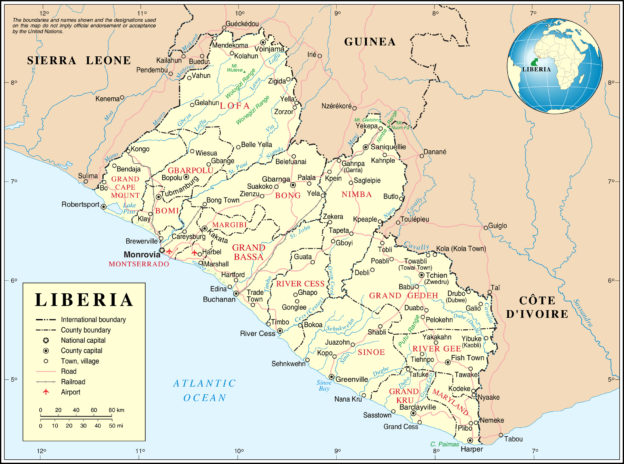EDITOR’S NOTE: The 2021 International Summit of the Sixth Region Diaspora Caucus (SRDC) will be held November 8-13 in Monrovia, Liberia. SRDC will be advancing its outreach to the Mother Continent through concrete projects and programs with grassroots organizations on the ground there, starting with the effort to build Liberia’s first public library and sponsoring the 2021 Summit in cooperation with the Liberian grassroots organization Sehwah-Liberia. The official announcement of the 2021 International Summit, with Registration Page and information regarding travel and accommodations for the Summit, will be made in the next week. Meanwhile, we invite our readers to enjoy this brief history of some of the connections between Africa and the Diaspora, specifically as they relate to the Republic of Liberia, from Baba Kumasi Palmer, SRDC-South Carolina Facilitator.
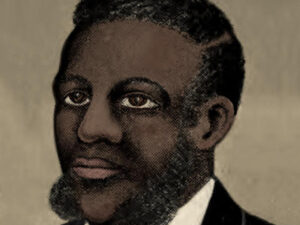
Lott Cary

Daniel Coker
The Republic of Liberia was established as an independent nation state off the coast of West Africa in 1847 by freedmen from the United States. The first set of freedmen from the U.S. settled on Sherbo Island in modern day Sierra Leone in 1820. After a year of hardship at Sherbo Island the returnees moved on further along the coast landing at Providence Island in 1821 which is today known as Liberia. Lott Cary (1780-1828) and Daniel Coker (1780-1846) were the first group of pioneers that arrived in the newly formed colonies of Sierra Leone and Liberia, Coker being one of the founding members of the African Methodist Episcopal Church founded in Philadelphia in the year 1816.
It was through the aid and support of the American Colonization Society (formed in 1817) to send freed Blacks to the colony of Liberia. During this same period Freetown, Sierra Leone was established by the British (1808) as a colony that served
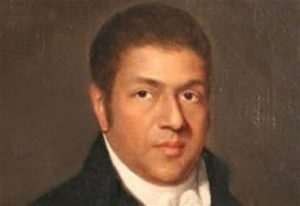
Paul Cuffee
as a refuge for enslaved Africans. Paul Cuffee (1759-1819), a freedman and owner of his own shipping vessel, was one of the earliest pioneers with the vision to repatriate freed Blacks from the United States to a new home in Sierra Leone. But it was Liberia that eventually became the new home for Repatriated Blacks from the US. This migration started by ship in 1820 and continued into the 1880’s.
The search for political, economic and physical security by Africans in the southern United States at the ending of Reconstruction created the condition for many Black families to seek refuge to Africa. Liberia was at the center of this migration and reconnection.
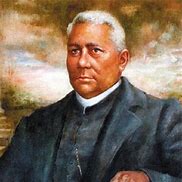
Henry McNeal Turner
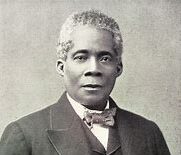
Edward Wilmot Blyden
Edward Wilmot Blyden (1832-1912), Henry McNeal Turner (1834-1915) and Martin R Delany (1812-1883) were three prominent 19th century Black leaders at the forefront to reconnect the Diaspora to Africa by way of Liberia during and after the Emancipation Proclamation in the United States. Blyden was the foremost intellectual thinker and activist to advocate Diasporan Blacks to repatriate to Liberia. Blyden, the originator of the concept called “The African Personality”, was born in St. Thomas, Virgin Islands but migrated to Liberia in 1850. Turner, who made numerous trips to Africa, was born in Newberry, South Carolina and became the 12th bishop of the African Methodist Episcopal Church (A.M.E) in 1880. Delany was born in West Virginia and served in the Civil War, and was commissioned as a medical doctor with the rank of major.
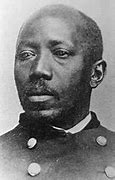
Martin R Delany
The early repatriates to Liberia also emigrated from the West Indies islands of Barbados, the Virgin Islands and Jamaica. From the United States they came from the states of Virginia, Maryland, New York, North Carolina, South Carolina, Georgia, Mississippi, Alabama, Kentucky, Tennessee, Arkansas, Texas and Ohio.
We find cities in Liberia named after the states and towns where the early repatriates came and settled. Greenville, (Greenville-SC) and Maryland County (Maryland) are some of the names similar to names of US cities and states. Then there are cities named after families that emigrated from the Caribbean such as Barclayville, (president Barclay-born-Barbados-West Indies), Bensonville-(president Benson-born in Maryland-U.S.).

Joseph Jenkins Roberts
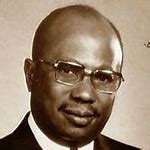
William R Tolbert Jr
All elected presidents of Liberia from 1848 until 1980 were born in the Diaspora or were the children of those born in the Diaspora. The first ten (10) presidents of Liberia were born in the Diaspora. Liberia’s first president, Joseph Jenkins Roberts (1848-1856), was born in Virginia. The grandfather of William Richard Tolbert Jr., the 20th president of Liberia (1975-1980), was born in Charleston, South Carolina.
Bridging the gap between Liberia and the Diaspora is a continued legacy established in the 19th Century by men and women who built the bridges for our Pan African connections. Many of those who left the United States for Liberia during the 19th Century embarked on ships docked at the Charleston Harbor located in South Carolina. Join us as we continue the journey of our pioneering ancestors who reconnected us over 200 years ago.
Our organization, The Sixth Region Diaspora Caucus (SRDC), is presently working with our partner organization in Liberia (SEHWAH) to construct a public library in the capital city of Monrovia, Liberia. Books for nation building are welcome. Contact us at panafricanlibrary@gmail.com or our website: https://srdcinternational.org.

